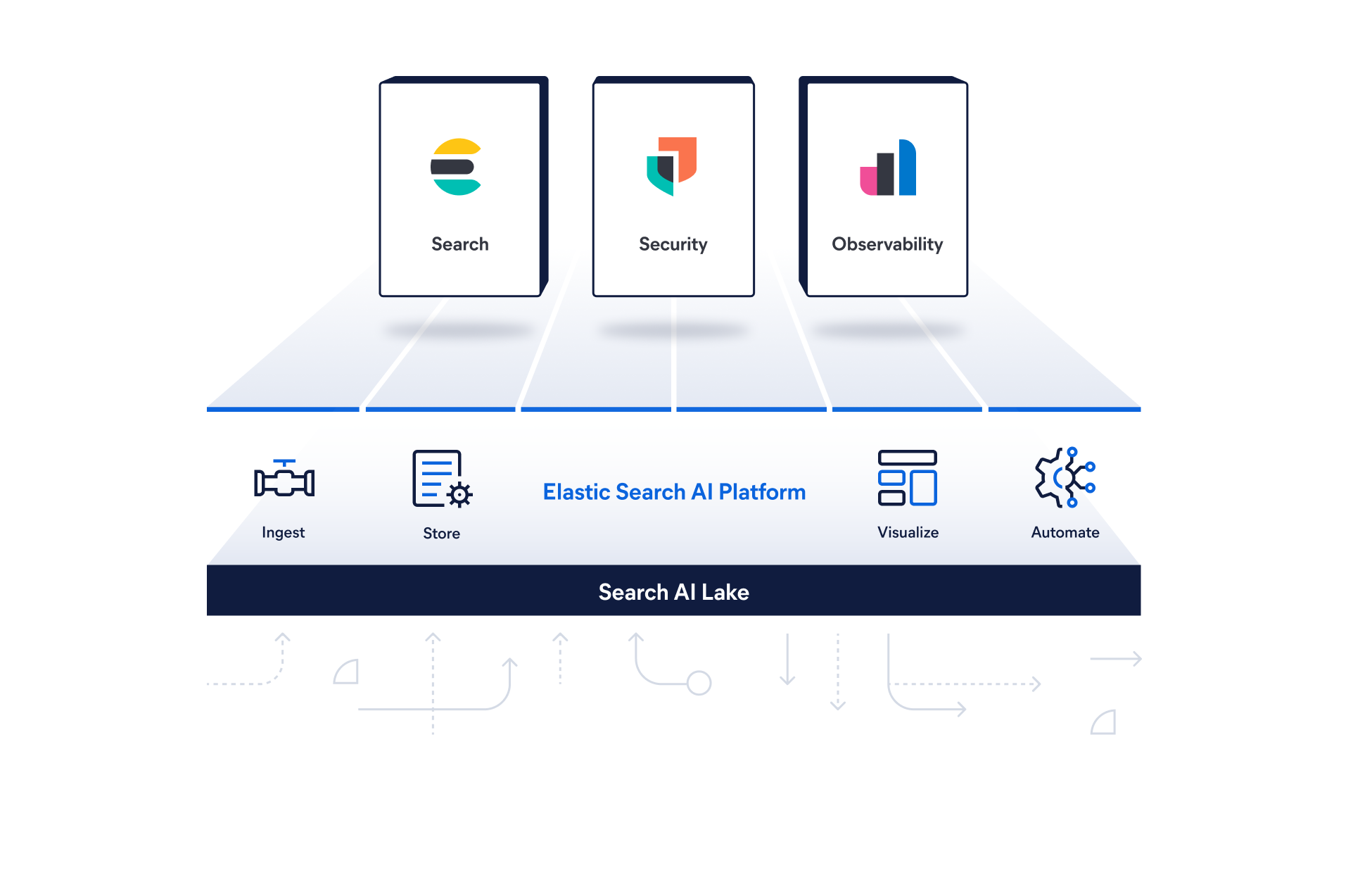Elastic fundamentals
Welcome to Elastic fundamentals. This section helps you understand our platform, learn core concepts, and explore deployment options.
If you are using a free 14-day Elastic Cloud trial and need guidance on building a proof of concept, refer to Evaluate Elastic during a trial.
In this section, we'll walk you through the basics of what our products offer, what they do, how they can help your business, and how to set them up. You'll get a quick look at the core features and concepts, real-world use cases, and deployment options to understand how everything fits together.
You'll also find other helpful information, such as how to use our docs, training resources, and a link to our glossary so you can familiarize yourself with our terminology.

Elastic provides an open source search, analytics, and AI platform, and out-of-the-box solutions for observability and security. The Search AI platform combines the power of search and generative AI to provide near real-time search and analysis with relevance to reduce your time to value.
Continue your journey with these essential guides that will help you understand and work with Elastic:
Solutions overview: Get an introduction to the Elasticsearch, Elastic Observability, and Elastic Security solutions and projects.
The Elastic Stack: Dive deeper into how the Elastic Stack—our suite of open-source tools, including Elasticsearch, Kibana, Beats, and Logstash—components work together. Learn about data ingestion methods and understand the core concepts of storing, visualizing, and querying your data.
Deployment options: Explore the different ways you can deploy Elastic, from fully managed serverless solutions to self-managed installations, and choose the approach that best fits your operational needs.
Versioning and availability: Learn how Elastic handles versioning, understand feature availability across different deployment types, and navigate our continuously updated documentation with confidence.
Whether you are just getting started with Elastic, an expert, or simply want to expand your knowledge, we provide role-based and solution-based training to empower you to get the most out of our solutions. You can even receive accreditation for completing our courses.
Ready to dive in? Check out https://www.elastic.co/training to browse our virtual and on-demand training courses. If you're unsure where to start, check out the Elasticsearch Engineer course.
To explore particular, more granular facets of the Elastic Stack, check out our demo gallery. You can filter by solution or subject area and choose the training style that best suits you.
If you prefer a deep dive where you can learn at your own pace, check out our six-part Beginner's Crash Course to Elastic Stack on YouTube.
Check out these additional resources to learn and explore other areas of Elastic:
- Deploy and manage: Learn how to deploy and manage all aspects of your Elastic environment.
- Manage data: Learn how to ingest and manage data stored in Elasticsearch.
- How to use the documentation: Understand how our documentation is organized, find the right version information for your products, and learn how to contribute.